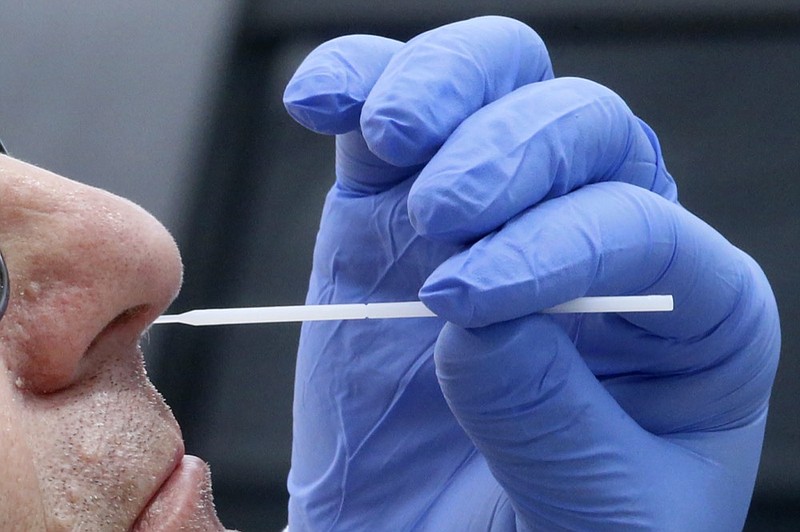NEW YORK (AP) - At one New York eatery, your table is ready - along with your coronavirus test results.
City Winery, an upscale chain, is trying a novel approach to indoor dining during a pandemic: Two nights a week, all patrons and staffers at its Manhattan location have to take a rapid virus test on-site and get an all-clear before coming in. (Other nights unfold without testing but with precautions including temperature checks and spaced-out tables.)
Costing diners $50 per person on top of their tabs, it's an elite experiment - complete with a free glass of sparkling wine - and health experts caution that a test isn't a failsafe. So does City Winery CEO Michael Dorf, but he thinks the idea is worth trying as restaurants try to get through a year of shutdowns and social distancing.
With winter looming over New York eateries' outdoor-dining lifeline, "how do we get people to dine inside, feel comfortable, feel as safe as possible, so that they can spend money in our restaurant, and our staff can make money?" asks Dorf, who says City Winery's business is down 85% compared to 2019. "We feel that this is what we need to do over the next five or six months in New York if we're going to be able to survive as a restaurant."
A hotel with a rooftop lounge and restaurant in Queens' hip Long Island City neighborhood briefly tried a similar testing program this summer. But it's not clear how many other restaurants might follow suit.
"In a more ideal world, government would provide restaurants and other venues the tests at no cost because many small businesses and their customers can't afford to do their own testing," said Andrew Rigie, the executive director of the NYC Hospitality Alliance, an advocacy group for restaurants, bars and other establishments.
The city does offer free rapid testing at a couple of community sites and announced plans Wednesday to add more.
As City Winery's testing debuted Tuesday, masked patrons - by reservation only, with about 10 people per 15-minute slot - had their noses swabbed by health care professionals amid casks and tanks in a wine-making area. The customers sipped bubbly wine as they waited about 15 minutes for results.
With a negative result, they were ushered to socially distanced tables in a sprawling dining room of the eatery that runs alongside the Hudson River. With 160 reservations, no patrons tested positive, though one staffer did and immediately went home without starting work, restaurant spokeswoman Hanna Bruy said.
To Kara Shields and her dining companions, the outing served two purposes at a time when waits are long at many testing centers.
"We've been being careful but just want to do an extra layer of making sure" by getting a test, Shields said, with "the added benefit of getting to enjoy some time and a meal before Thanksgiving with some friends."
Her friend Kirsten Brandenburg felt the testing provided some reassurance "that eating here is safer than most places. It's nice to have."
Rapid coronavirus tests have become widely used in recent months as faster and cheaper alternatives to tests that have to be sent to labs for processing. But the rapid antigen tests, which look for proteins found on the virus' surface, aren't considered as accurate as lab-processed ones that look for bits of the virus' genetic material.
Dr. Jennifer Lighter, an epidemiologist in the NYU Langone hospital system, appreciates initiatives to boost testing, at restaurants or elsewhere. But she emphasizes that testing is no substitute for masks, social distancing and ventilation in preventing the virus' spread.
Restaurant-goers "should not let their guard down, and they should still be as safe as possible," Lighter said. And she cautioned that such offerings could only add to the socioeconomic inequalities that have rippled through the U.S. pandemic response.
"If people can have access to quick testing that's readily available not only for restaurants, but for going to see grandma," she said, "that is another helpful intervention we use to protect each other."
